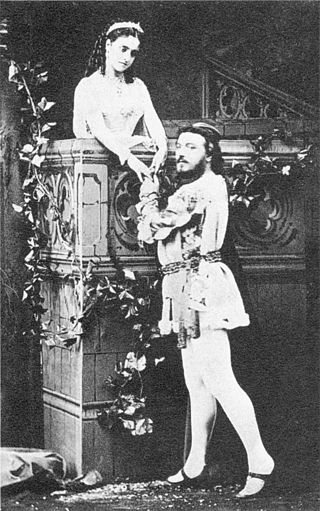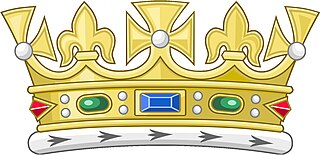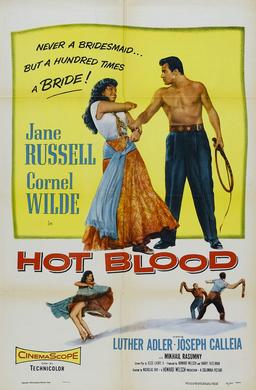Related Research Articles

Morlanwelz is a municipality of Wallonia located in the province of Hainaut, Belgium.

Stephen or Steven is a common English first name. It is particularly significant to Christians, as it belonged to Saint Stephen, an early disciple and deacon who, according to the Book of Acts, was stoned to death; he is widely regarded as the first martyr of the Christian Church.
Book the Second: The Reptile Room is the second book in the children's series A Series of Unfortunate Events, written by Daniel Handler under the pseudonym Lemony Snicket. The book tells the story of the Baudelaire orphans, as they are sent to live with a distant relative named Montgomery Montgomery.
Stephanos or Stefanos, in Greek Στέφανος, is a masculine given name derived from the Greek word στέφανος (stéphanos), meaning "wreath, crown" and by extension "reward, honor, renown, fame", from the verb στέφειν (stéphein), "to encircle, to wreathe". In Ancient Greece, crowning wreaths were given to the winners of contests. Originally, as the verb suggests, the noun had a more general meaning of any "circle"—including a circle of people, a circling wall around a city, and, in its earliest recorded use, the circle of a fight, which is found in the Iliad of Homer. The English equivalent is Stephen.

Roméo et Juliette is an opera in five acts by Charles Gounod to a French libretto by Jules Barbier and Michel Carré, based on Romeo and Juliet by William Shakespeare. It was first performed at the Théâtre Lyrique, Paris on 27 April 1867. This opera is notable for the series of four duets for the main characters and the waltz song "Je veux vivre" for the soprano.

A circlet is a piece of headwear that is similar to a diadem or a corolla. The word 'circlet' is also used to refer to the base of a crown or a coronet, with or without a cap. Diadem and circlet are often used interchangeably, and 'open crowns' with no arches have also been referred to as circlets. In Greek this is known as stephanos, and in Latin as corona aperta, although stephanos is associated more with laurel wreaths and the crown of thorns said to have been placed on the head of Jesus.
Stéphanos II Ghattas was an eparch of the Coptic Catholic Church. From 1986 to 2006 he served as the Coptic Catholic Patriarch of Alexandria. He was also a Cardinal. His canonization process has been initiated.
The following are the association football events of the year 1979 throughout the world.

Ion Dragoumis was a Greek diplomat, philosopher, writer and revolutionary.
Stephanus of Alexandria was a Byzantine philosopher and teacher who, besides philosophy in the Neo-Platonic tradition, also wrote on alchemy, astrology and astronomy. He was one of the last exponents of the Alexandrian academic tradition before the Islamic conquest of Egypt.

Stephano is a boisterous and often drunk butler of King Alonso in William Shakespeare's play, The Tempest. He, Trinculo and Caliban plot against Prospero, the ruler of the island on which the play is set and the former Duke of Milan in Shakespeare's fictional universe. In the play, he wants to take over the island and marry Prospero's daughter, Miranda. Caliban believes Stephano to be a god because he gave him wine to drink which Caliban believes healed him.
Esteban is a Spanish male given name, derived from Greek Στέφανος (Stéphanos) and related to the English names Steven and Stephen. Although in its original pronunciation the accent is on the penultimate syllable, English-speakers tend to pronounce it as a proparoxytone EST-ib-an.

Hot Blood is a 1956 American CinemaScope Technicolor musical film directed by Nicholas Ray and starring Jane Russell, Cornel Wilde and Joseph Calleia. It was produced and distributed by Columbia Pictures.

Stephanos Bibas is an American lawyer and jurist who serves as a circuit judge on the U.S. Court of Appeals for the Third Circuit. Before his appointment to the bench, Bibas was a professor of law and criminology at the University of Pennsylvania Law School, where he also served as director of its Supreme Court clinic.

Panachaiki G.E. is a Greek multi-sport club based in the city of Patras, Greece.
"Against Neaera" was a prosecution speech delivered by Apollodoros of Acharnae against the freedwoman Neaera. It was preserved as part of the Demosthenic corpus, though it is widely considered to be pseudo-Demosthenic, possibly written by Apollodoros himself. The speech was part of the prosecution of Neaera, a hetaera who was accused of unlawfully marrying an Athenian citizen. Though the speech claims that the case was brought for personal reasons, the date of the prosecution has led scholars to believe that it was in fact politically motivated. In common with most legal cases from ancient Athens, the outcome is unknown.
Madnasa, or Medmasa (Μέδμασα), also known as Medmasus or Medmasos (Μέδμασος), was a town in ancient Caria, at the Myndos Peninsula, and is currently an archaeological site near upper Göl, about 13 km northeast of Myndos. In 5th century BCE the city was included in the Delian League and Athenian tribute lists.
The speeches "Against Stephanos" were two orations surviving in the Demosthenic corpus, and delivered by Apollodoros of Acharnae. The second speech against Stephanos, preserved as Demosthenes' 46th, was certainly not composed by Demosthenes, but the authorship of the first speech is disputed. The speeches are part of a dispute between Apollodoros and his stepfather Phormion.
Stephanos Charalambous is a Cypriot professional footballer who plays as an attacking midfielder for Cypriot First Division club Anorthosis.

SS Stephano was a passenger liner and sealing ship, owned by Bowring Brothers and operated in their Red Cross Line of Arctic steamships. Stephano is most notable for her role in the 1914 Newfoundland Sealing Disaster, under the command of Captain Abram Kean. Stephano was the sister ship to the SS Florizel.
References
- ↑ Stephano Mwasika at National-Football-Teams.com
